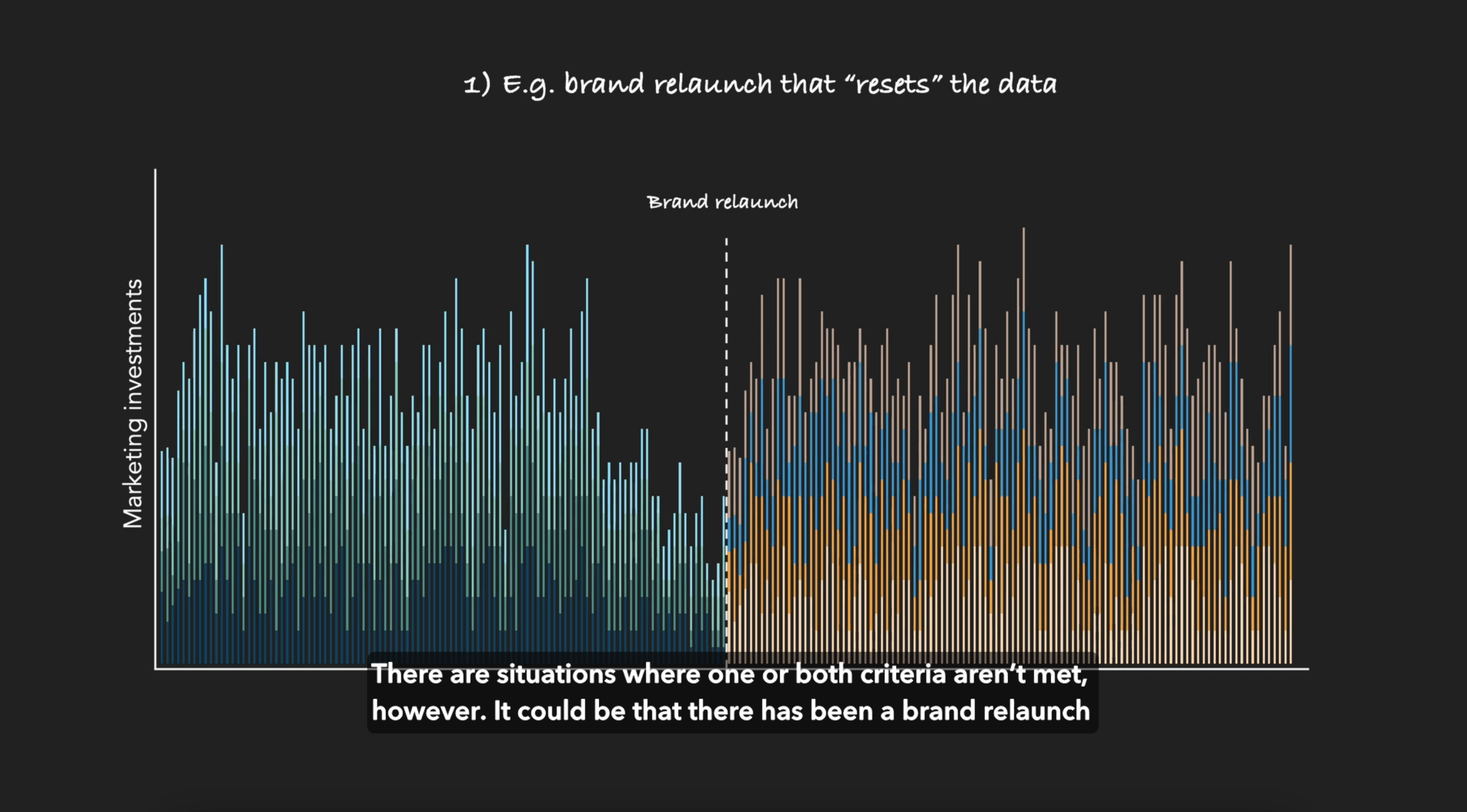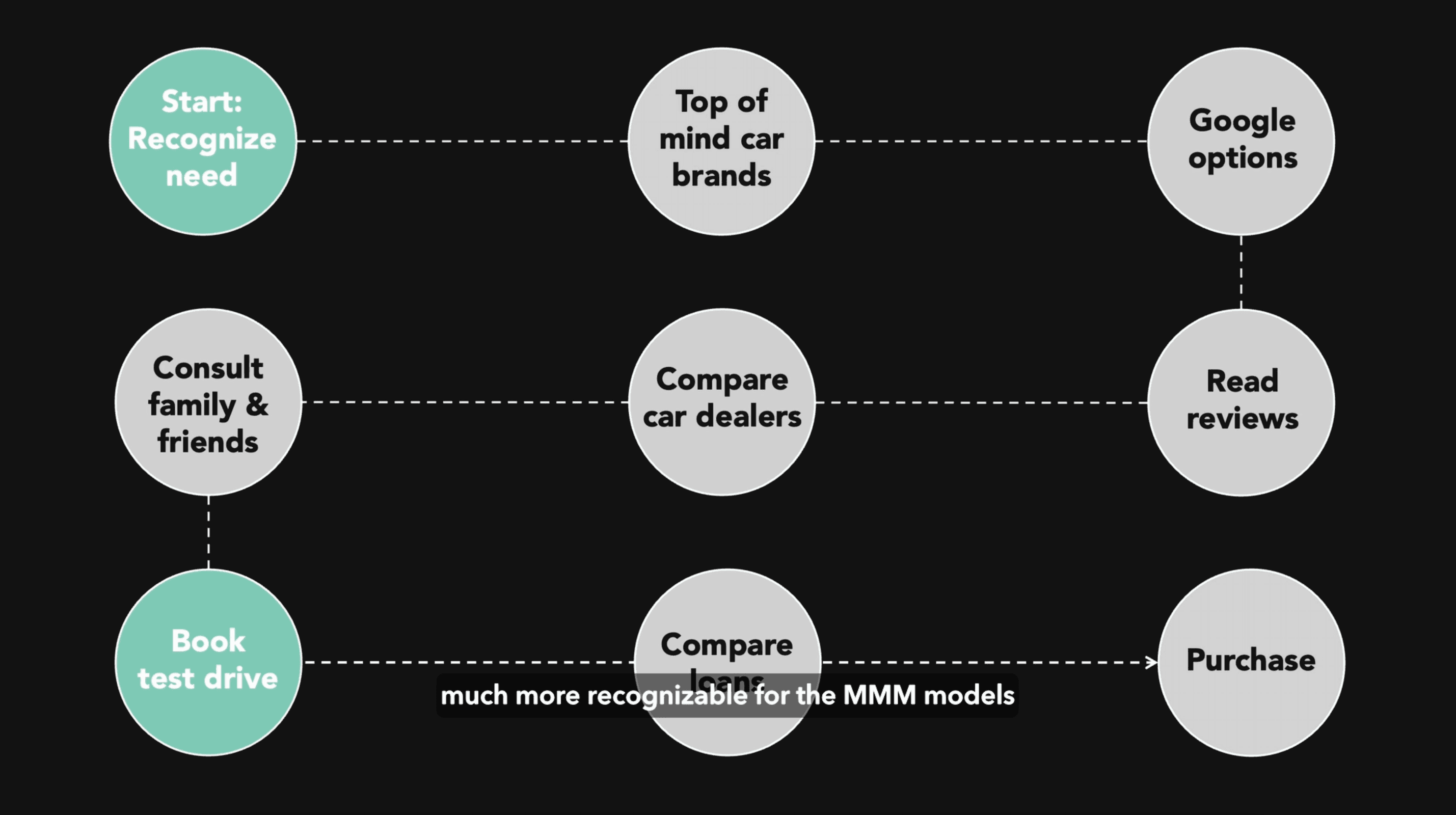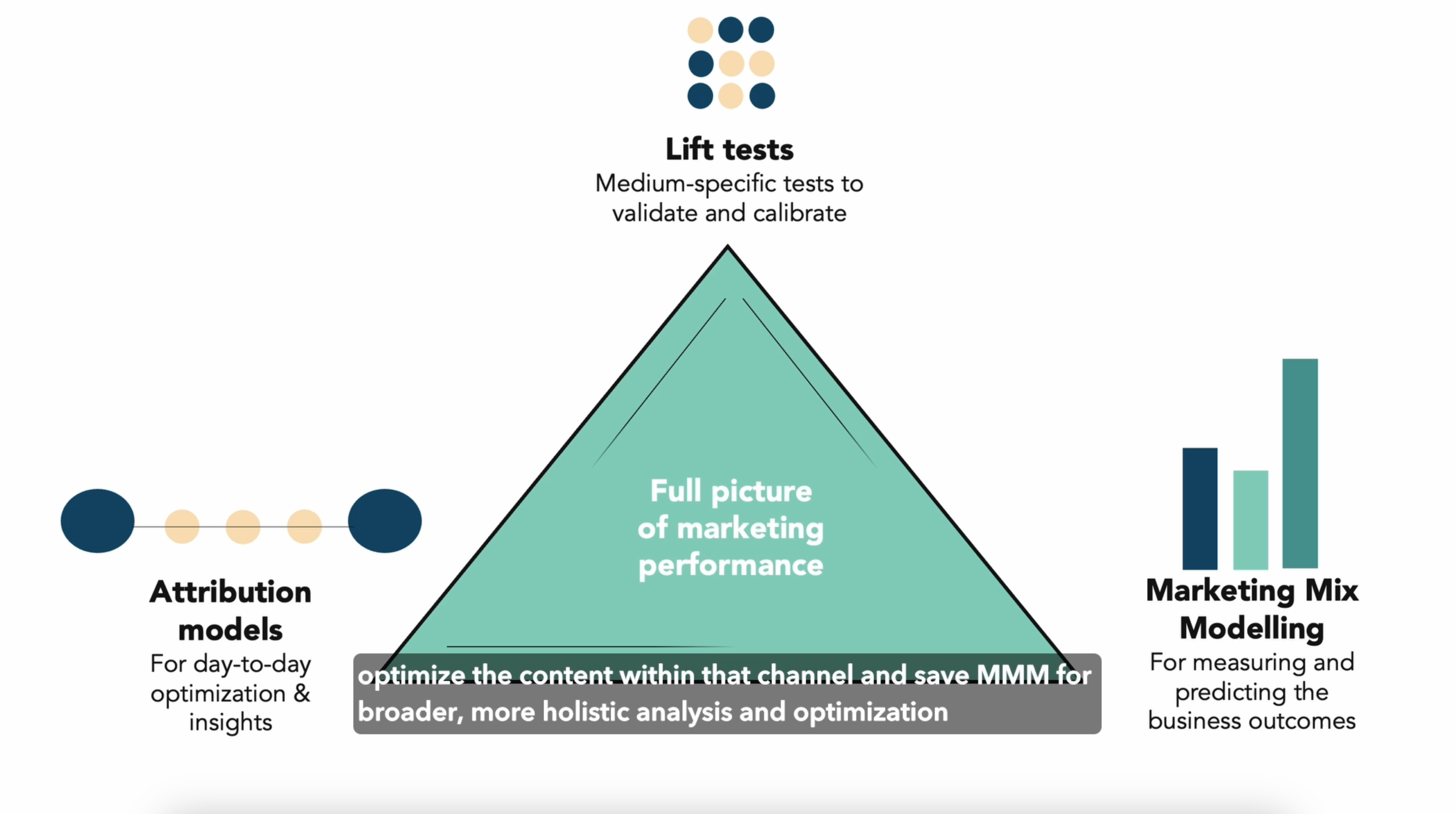Part 2: Why to use MMM
What are the use cases and benefits of Marketing Mix Modeling

Why to use MMM
Lesson 2.3 - When not to use MMM
In this lesson (5:24)
- Special situations where MMM might not be the best option
- Alternative methods to measure the effectiveness in these situations
Too little or sparse data
If there’s a relatively short amount of data available (less than 6 months), marketers can use customer research to find out where the customers have interacted with the brand.
If the data is too aggregated, Lift-tests can reveal what’s the incremental uplift for a specific channel.
And if there haven’t been that many activities in the past, a simple last-click attribution or linear regression might do the trick in getting some insights about the effectiveness.

Too long buying cycles
In cases where consumers’ decision-making journey takes several months, it can be difficult to model individual activities and channels’ impact on the final decision.
A workaround for the problem relates to what can and can’t be measured. Instead of trying to model the sales uplifts, marketers can analyze how marketing is affecting brand attributes and KPIs with market research.
Another alternative is to go for short-term signals – which in our car retail example could mean test drives – which are much more recognizable for the MMM models.

Micro-level optimization
Unlike the first two situations, it’s not that MMM couldn’t model individual ads’ incremental uplifts and Return on Marketing Investment, but rather that you shouldn’t use MMM to get these insights.
Especially in digital advertising, where agile A/B testing is quite typical, the ad platforms have developed specific features for finding out the best-performing content for the channel.
As the results within the channel are comparable with each other, marketers can and should use these insights to optimize the content within that channel and save MMM for broader, more holistic analysis and optimization.
